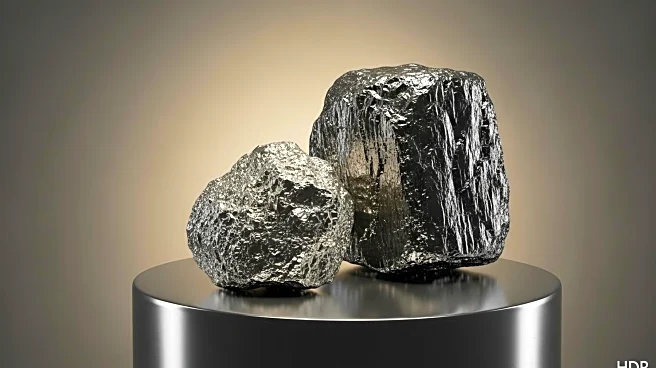What's Happening?
The Indonesian Government has announced a significant policy change by eliminating the requirement for miners to adhere to government-set benchmark prices for minerals and coal sales. This decree allows miners to sell at prices below the benchmarks, although production levies and taxes will still be calculated based on these benchmarks. The industry has shown a preference for the 'Indonesian Coal Index' due to its transparency and frequent updates. This move is part of a broader strategy to attract investment and develop Indonesia's natural resources, with 18 projects valued at $38.6 billion identified for potential investment.
Why It's Important?
This policy shift could have substantial implications for global mineral and coal markets, potentially affecting pricing and trade dynamics. By allowing more flexible pricing, Indonesia aims to boost its competitiveness in the global market, which could lead to increased exports and economic growth. This change may also influence global supply chains, particularly for countries reliant on Indonesian coal and minerals. Additionally, the move aligns with President Prabowo Subianto's economic growth strategy, potentially attracting foreign investment and enhancing Indonesia's role as a key player in the global resource market.
What's Next?
The removal of benchmark price requirements is likely to prompt reactions from international buyers and competitors. Stakeholders in the mining industry may need to adjust their pricing strategies and contracts to align with the new policy. Additionally, the Indonesian Government's focus on attracting investment through its sovereign wealth fund, Danantara, suggests further developments in the mining sector. Observers will be watching how these changes impact Indonesia's economic growth targets and its position in the global market.











